If you’ve recently treated your dog for fleas, you may be wondering how long it will take for the itching to subside. It can be frustrating to see your furry friend in discomfort, but rest assured, the itching is a normal reaction to the flea treatment. While each dog may react differently, most typically experience itching for a few days to a week after treatment. In this article, we’ll explore the reasons behind post-flea treatment itching and provide some helpful tips on how to alleviate your dog’s discomfort. So, grab a cup of tea, settle in, and let’s get started!
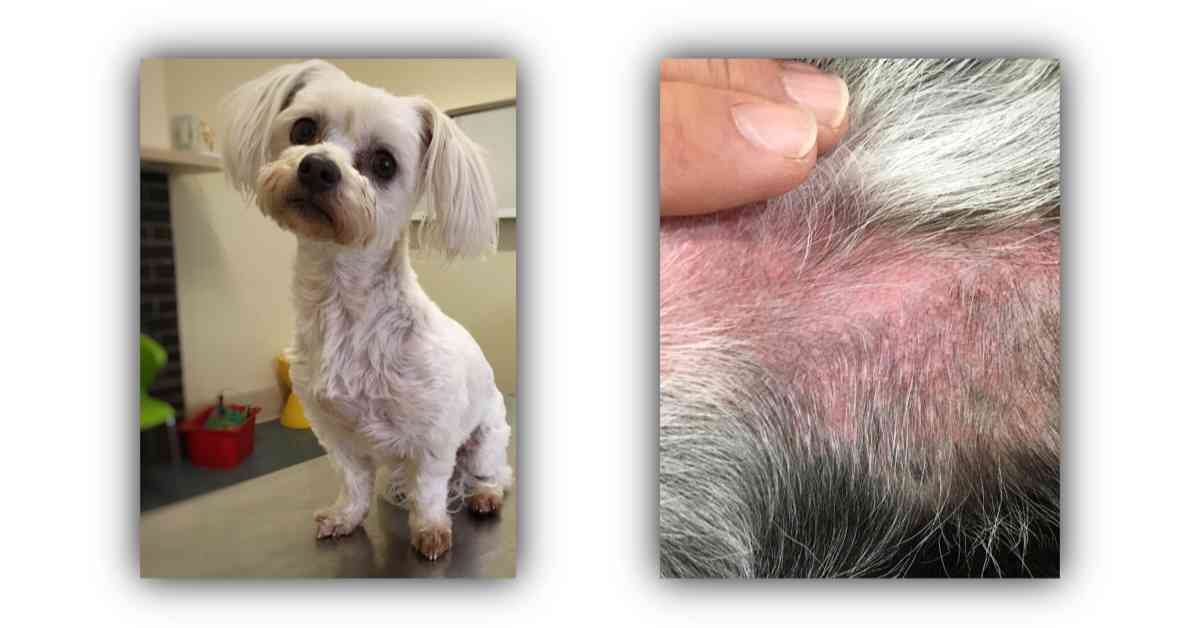
Understanding the Flea Lifecycle
Stages of the flea life cycle
To understand why your dog may still itch after flea treatment, it is essential to grasp the flea lifecycle. The lifecycle of a flea consists of four key stages: egg, larva, pupa, and adult. Fleas start as tiny eggs that are laid on your dog’s fur or in their environment. These eggs then develop into larvae, which feed on organic matter, such as flea feces. After going through the larval stage, fleas form pupae, where they undergo a metamorphosis. From the pupae, adult fleas emerge, ready to find a host to feed on.
How fleas interact with your dog
Fleas are parasitic insects that rely on warm-blooded animals, like dogs, as their hosts. They need to feed on blood to survive and reproduce. When fleas infest your dog, they use their mouthparts to bite and feed on your dog’s blood. This feeding can cause discomfort, irritation, and itching for your furry friend. Additionally, as fleas move around your dog’s body, they may leave behind saliva and feces, which can trigger allergic reactions in some dogs, leading to intense itching and potential skin issues.
Overview of Flea Treatments
Common flea treatment options
When it comes to treating fleas, there are various options available. These include spot-on treatments, oral medications, flea shampoos, flea collars, and sprays. Spot-on treatments, such as those applied to the back of the neck, are popular due to their effectiveness and ease of use. Oral medications, on the other hand, work from the inside out, killing fleas when they bite your dog. Flea shampoos can provide immediate relief by killing and removing fleas during bath time. Flea collars and sprays offer more long-term protection by repelling and killing fleas over time.
How flea treatments work
Different flea treatments work in different ways to eliminate fleas from your dog. Spot-on treatments and oral medications often contain insecticides or growth inhibitors that kill fleas upon contact or hinder their ability to reproduce. These treatments can target fleas at various stages of their lifecycle, preventing eggs from hatching or killing existing adults. Flea shampoos typically contain active ingredients that kill fleas on contact, providing immediate relief. Collars and sprays often release insecticides slowly, providing continuous protection against fleas.
Post-Flea Treatment Itching
Average duration of itching after treatment
After treating your dog for fleas, you may wonder how long it will take for the itching to subside. While every dog is different, the average duration of itching after flea treatment ranges from a few days to a couple of weeks. Itching is a common side effect as your dog’s body reacts to the elimination of fleas and their saliva. It is important to note that prolonged itching may indicate other underlying issues, such as flea allergy dermatitis or secondary skin infections.
Why does itching continue after treatment
Even after treatment, itchiness may persist for several reasons. First, the remaining flea saliva on your dog’s skin can continue to cause allergic reactions and itching. Additionally, the bites and irritation caused by fleas can lead to inflammation and skin damage, which may take some time to heal. Lastly, if your dog had a severe flea infestation or is particularly sensitive to flea bites, it may take longer for the itching to subside completely.
Factors Affecting Duration of Itching
The severity of the flea infestation
The severity of the flea infestation on your dog can directly impact the duration of itching post-treatment. If your dog had a significant flea population or a long-standing infestation, it may take more time for the itching to subside. In such cases, even after eliminating the fleas, your dog’s body may still react to the previous flea bites, leading to extended itching.
Your dog’s skin sensitivity
Just like humans, dogs can have varying levels of skin sensitivity. Some dogs may be more prone to allergic reactions and intense itching after flea bites, while others may show minimal symptoms. If your dog has a higher sensitivity to flea saliva, they may experience more prolonged itching, even after effective flea treatment.
The type of flea treatment used
Different flea treatments have varying levels of efficacy and speed of action. Some treatments may provide immediate relief, while others may take longer to eliminate the fleas and alleviate itching. It is crucial to follow the instructions provided by the manufacturer and give the treatment enough time to take effect. If the itching persists for an extended period, it may be worth considering alternative treatments or consulting a veterinarian.
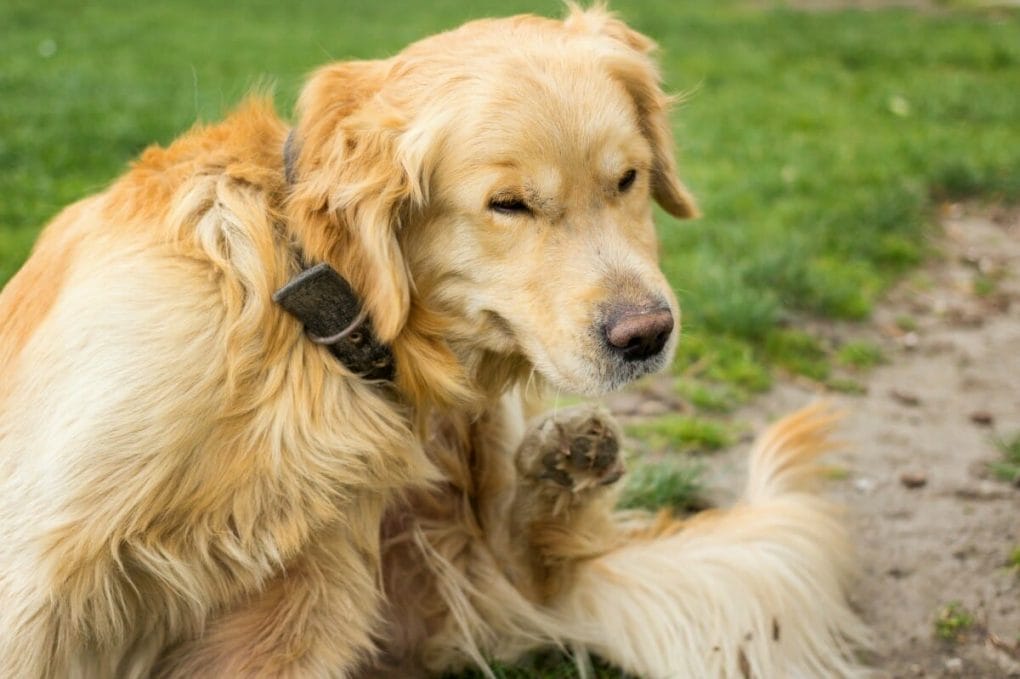
Identification of Flea Allergy Dermatitis
Symptoms of flea allergy dermatitis
Flea allergy dermatitis is a common allergic reaction triggered by flea bites. Dogs with flea allergy dermatitis are hypersensitive to flea saliva, leading to intense itching and discomfort. Common symptoms of flea allergy dermatitis include excessive scratching, biting, and licking, especially around the tail, back, and hindquarters. You may notice redness, inflammation, and the formation of small, raised bumps, known as papules. In severe cases, hair loss and secondary skin infections can also occur.
How flea allergy dermatitis contributes to itching
When a dog with flea allergy dermatitis is bitten by a flea, their immune system overreacts to the flea saliva. This triggers an allergic response, leading to intense itching and irritation. Even if the fleas are eliminated, the residual saliva left on the dog’s skin can continue to cause allergic reactions, prolonging the itching period. It is essential to address both the fleas and the allergic reaction to provide complete relief for your dog.
Secondary Skin Infections
How secondary skin infections can develop
Constant scratching and itching caused by flea bites can damage your dog’s skin, creating an entry point for secondary skin infections. The broken skin provides an opportunity for bacteria to enter and multiply, leading to infections. Common bacteria that can cause these infections include Staphylococcus and Streptococcus. Dogs with flea allergy dermatitis are particularly vulnerable to secondary skin infections due to the persistent scratching and weakened skin barrier.
The role of secondary skin infections in prolonging itching
Secondary skin infections can exacerbate itching and prolong the recovery period after flea treatment. The infections cause additional inflammation, redness, and discomfort for your dog. The constant cycle of itching, scratching, and bacterial contamination can create a challenging situation to break. If you suspect a secondary skin infection, it is crucial to consult a veterinarian for proper diagnosis and treatment.
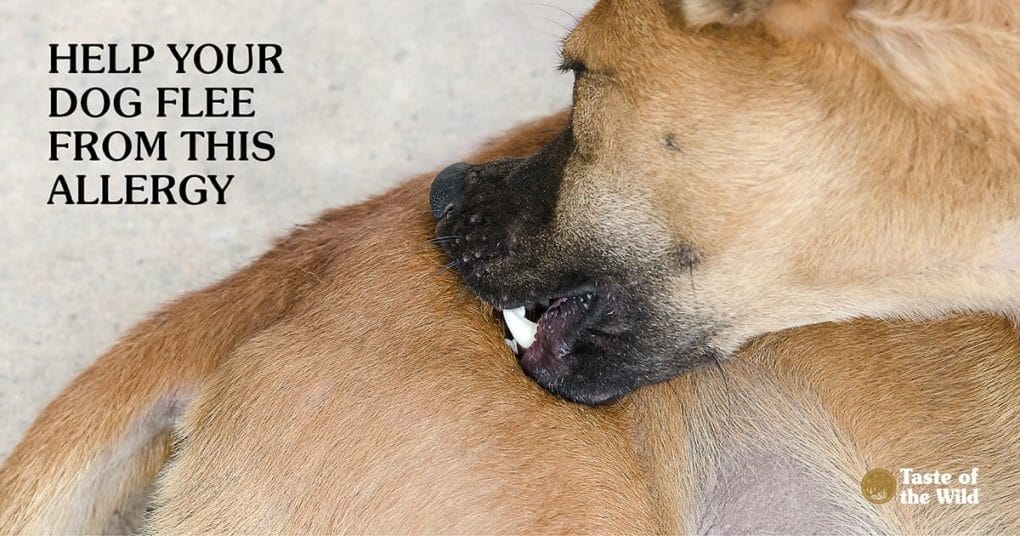
Improper Application of Flea Treatments
Common mistakes in applying flea treatments
Proper application of flea treatments is crucial for their effectiveness and your dog’s comfort. Common mistakes include not following the instructions provided with the product, using expired treatments, applying the treatment to the wrong areas, or not using enough product for your dog’s size. These errors can prevent the treatment from working optimally, leading to persistent fleas and prolonged itching.
How improper application can extend the itching period
When flea treatments are not applied correctly, there is a higher chance of incomplete elimination of fleas. Even a few surviving fleas can cause continued irritation and itching for your dog. Additionally, using less product than recommended can result in a lower concentration of active ingredients, diminishing the treatment’s effectiveness. It is essential to carefully read and follow the instructions for the specific flea treatment you are using to ensure proper application and maximize its benefits.
Monitoring your Dog’s Itching
Indications that itching is decreasing
While your dog’s itching may continue for some time after flea treatment, there are signs that indicate it is decreasing. Watch for a gradual reduction in scratching, biting, and licking behaviors. You may also observe the disappearance of any visible skin irritations, such as redness or bumps. As the itching subsides, your dog’s overall comfort level will improve, and they will become less preoccupied with scratching.
Signs that itching is increasing or not improving
If your dog’s itching persists or worsens after flea treatment, it may indicate an underlying issue or a need for a different approach. Continuous scratching, along with the appearance of new skin irritations or open wounds, suggests that additional intervention may be necessary. It is essential to pay attention to any changes in your dog’s behavior or skin condition and consult a veterinarian if the itching does not improve.
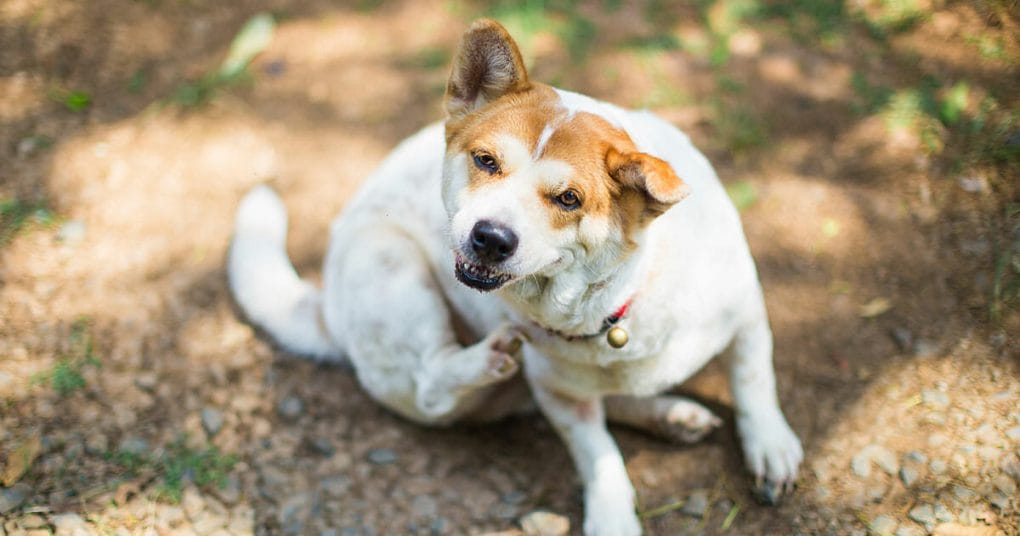
Additional Measures to Alleviate Itching
Home remedies for itch relief
Alongside flea treatment, there are several home remedies that can help alleviate your dog’s itching. These include providing a cool bath with oatmeal or apple cider vinegar, using a gentle, hypoallergenic dog shampoo, applying soothing topical creams or gels, and using natural remedies like herbal sprays or chamomile tea rinses. However, it is important to note that home remedies may not be sufficient for certain cases, especially if there are underlying medical conditions.
Prescribed treatments for persistent itching
If your dog’s itching persists despite flea treatment and home remedies, it may be necessary to seek professional help from a veterinarian. They can assess your dog’s condition and prescribe appropriate treatments, such as antihistamines, corticosteroids, or hypoallergenic diets. These treatments aim to address the underlying causes of itching, provide relief, and prevent further discomfort or complications.
Consulting the Vet
When to consult a vet
If your dog’s itching continues for an extended period or shows no signs of improvement after flea treatment, it is advisable to consult a veterinarian. A vet can thoroughly evaluate your dog’s skin, identify any underlying issues, and recommend the appropriate course of action. Additionally, if your dog has a history of flea allergy dermatitis or secondary skin infections, professional guidance is crucial in managing and treating these conditions effectively.
How vets diagnose and treat prolonged itching after flea treatment
To diagnose the cause of prolonged itching, a veterinarian will conduct a physical examination of your dog’s skin, ask about their medical history, and inquire about recent flea infestations or treatments. They may also perform additional diagnostic tests, such as skin scrapings, bacterial cultures, or allergy testing. Once the underlying cause is identified, the vet will develop a tailored treatment plan, which may include anti-inflammatory medications, antibiotics for secondary infections, or referral to a veterinary dermatologist for further evaluation.
In conclusion, post-flea treatment itching can occur due to various factors, such as the flea lifecycle, flea allergy dermatitis, secondary skin infections, and improper application of treatments. Remember to monitor your dog’s itching, use additional measures to alleviate discomfort, and consult a vet if the itching persists. With proper care and attention, you can help your dog find relief from itching and ensure their overall well-being.


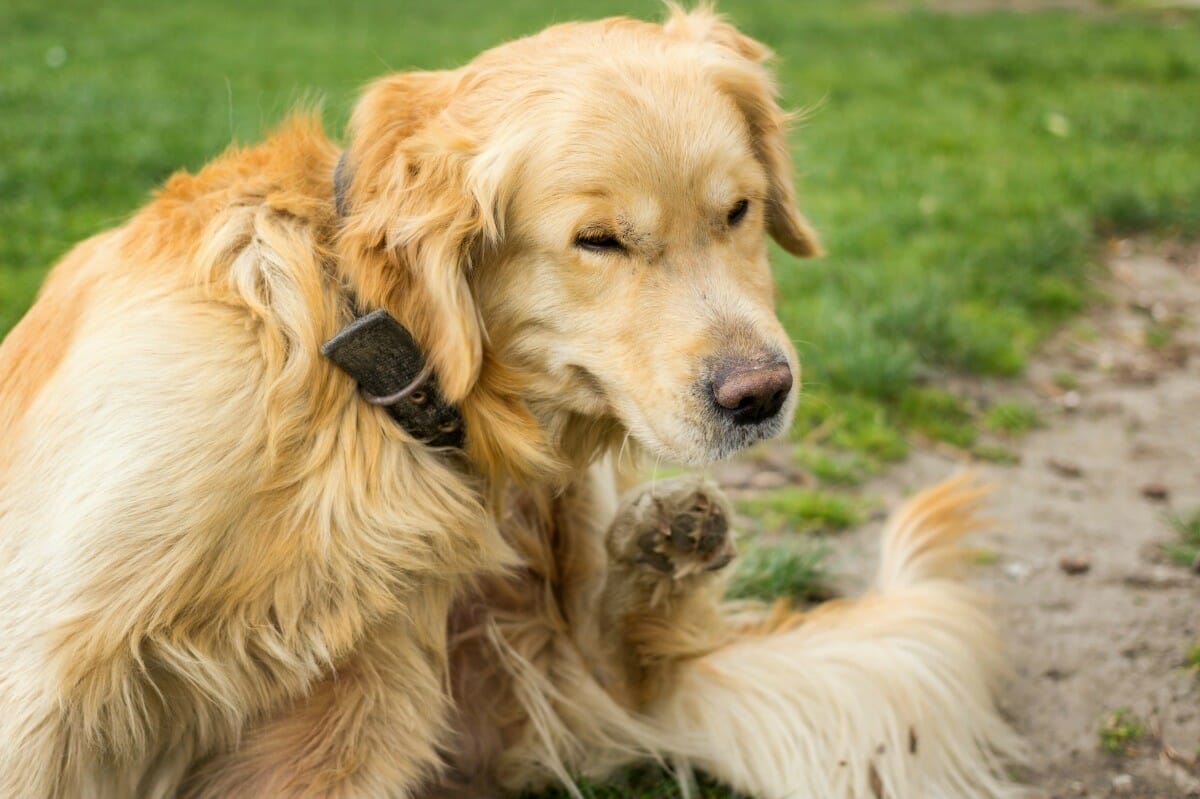
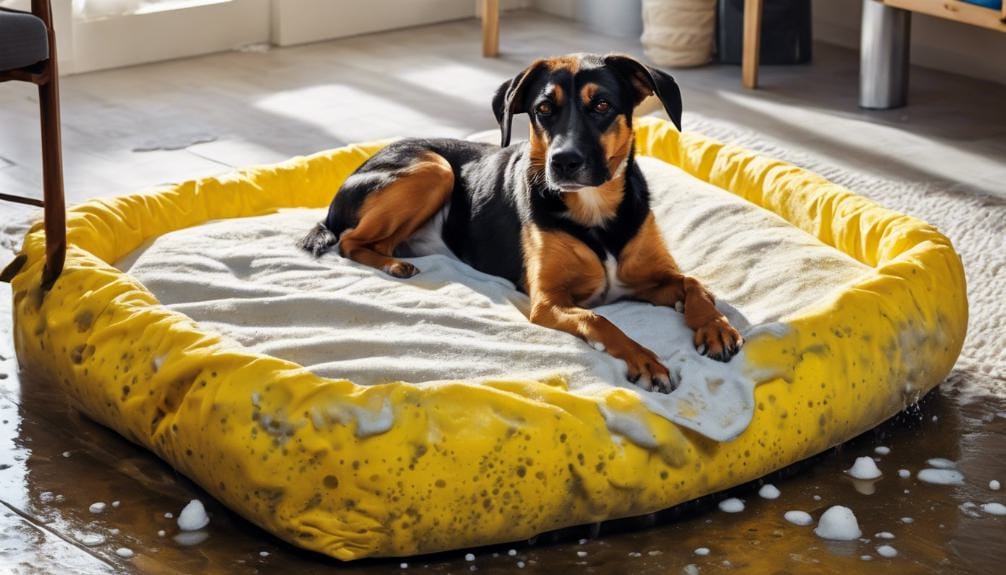
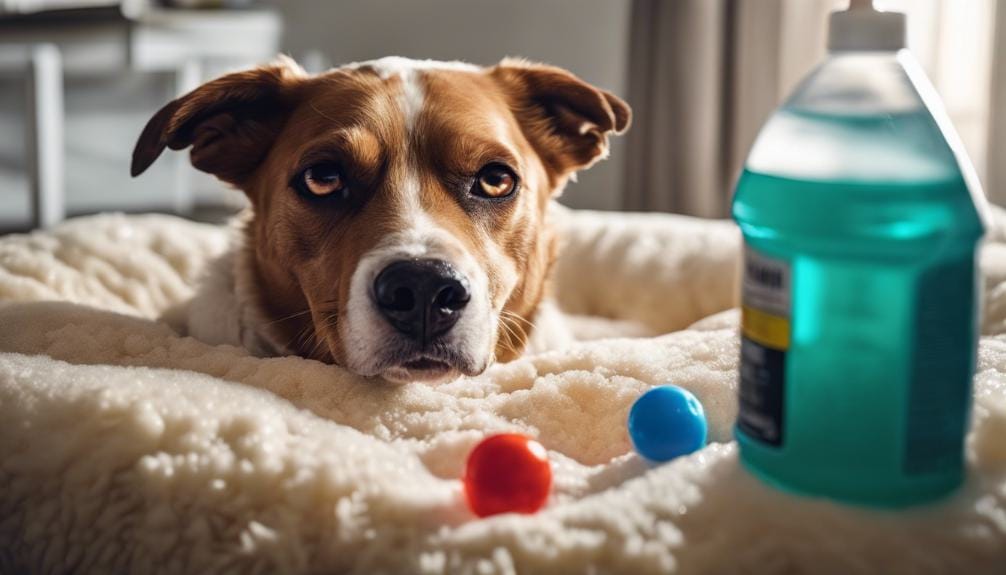

Leave a Reply
You must be logged in to post a comment.